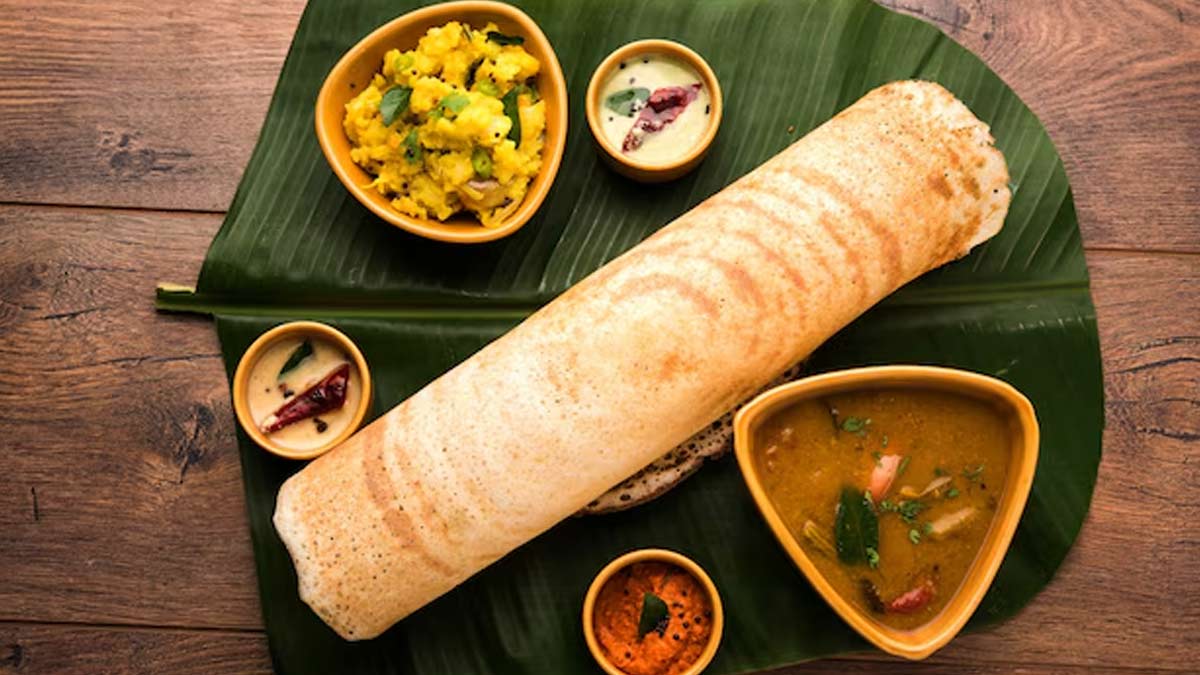
The adage ‘you are what you eat’ holds profound truth, especially when considering the intricate balance of microorganisms residing in our gut. These tiny organisms, collectively known as the gut microbiome, play a pivotal role in digestion, immunity, and overall well-being. Traditional South Indian cuisine, with its emphasis on fermentation and whole grains, offers a treasure trove of probiotic-rich foods that can nurture a thriving gut ecosystem.
Table of Content:-
Benefits Of South Indian Cuisine For Gut Health
According to Harvard Medical School, our gut is home to trillions of bacteria, both beneficial and harmful. A healthy balance of these microorganisms is crucial for optimal digestion, nutrient absorption, and immune function. Probiotics, live microorganisms that confer health benefits when consumed, help to replenish and diversify the gut flora.
South Indian culinary traditions have, for centuries, incorporated fermentation techniques that foster the growth of beneficial bacteria. According to a study published in the journal Fermented Food Products, here are some of the most popular probiotic-rich dishes in South Indian cuisine:

Idli and Dosa
These staples of South Indian breakfast are not just delicious but also powerhouses of probiotics. The fermentation process involved in making the batter creates a rich environment for beneficial bacteria to thrive. Idli and dosa are not only easy on the digestive system but also provide essential nutrients like protein and fibre.
Buttermilk (Dahi or Perugu)
A staple in South Indian households, buttermilk is a cooling and refreshing drink packed with probiotics. It aids digestion, soothes the gut, and provides essential calcium.
Yoghurt (Curd)
Similar to buttermilk, yoghurt is another probiotic-rich dairy product that can be enjoyed plain or used as a base for various dishes. It's a versatile ingredient that supports gut health and overall well-being.
Khadi
A traditional fermented rice drink, khadi is a lesser-known probiotic powerhouse. It's tangy, refreshing, and packed with beneficial bacteria. Khadi is believed to aid digestion and improve gut health.
Also Read: Probiotics Can Help You Fight Viral Infections, Expert Lists Sources

Sambhar
While not fermented itself, sambhar is often made with ingredients like tamarind and spices that promote the growth of beneficial gut bacteria. The combination of lentils, vegetables, and spices in sambhar makes it a nutritious and gut-friendly dish.
How Probiotics Benefit Your Gut Health
A research study out of Greece shared that consuming probiotic-rich foods like these South Indian delicacies offers several advantages:
- Improved Digestion: Probiotics help break down food, absorb nutrients, and prevent constipation and diarrhoea.
- Enhanced Immune Function: A healthy gut microbiome supports a robust immune system, reducing susceptibility to infections.
- Better Nutrient Absorption: Probiotics facilitate the absorption of essential vitamins and minerals from food.
- Reduced Inflammation: Chronic inflammation is linked to various health issues. Probiotics can help modulate inflammation.
- Mood And Mental Well-Being: The gut-brain connection is well-established. A healthy gut microbiome is associated with improved mood and cognitive function.
Also Read: How Probiotics Can Help You Get Relief From Gut Issues During Monsoon
Including Probiotic-Rich Foods into Your Diet
While these traditional South Indian dishes are excellent sources of probiotics, it's essential to remember that a diverse diet is key to a thriving gut microbiome. Consider incorporating a variety of fermented foods, such as kimchi, sauerkraut, and kefir, into your meals. Additionally, focus on consuming plenty of fibre-rich fruits, vegetables, and whole grains to support the growth of beneficial bacteria.
By embracing the probiotic-rich wonders of South Indian cuisine and making conscious dietary choices, you can pave the way for a healthier, happier gut. While probiotic-rich foods offer numerous health benefits, it's essential to consult with a healthcare professional for personalised advice, especially if you have underlying health conditions.
Also watch this video
How we keep this article up to date:
We work with experts and keep a close eye on the latest in health and wellness. Whenever there is a new research or helpful information, we update our articles with accurate and useful advice.
Current Version